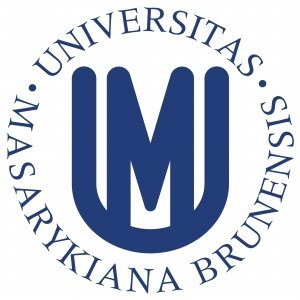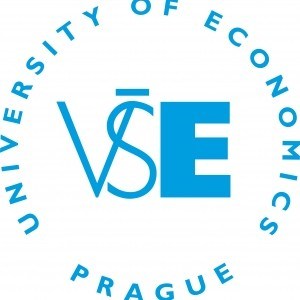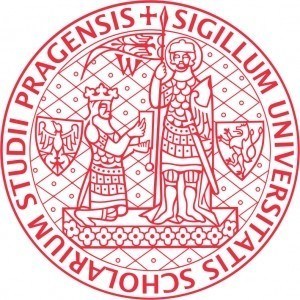Photos of university / #muni_cz
Dealing with important questions in today's Europe
- Financial markets in crisis - how can they be regulated?
- Sustainable energy - how can we make the transition to a green economy?
- Welfare states - should they be reformed to foster economic growth, and if so how can this be done?
- Cross-border policing - what are the emerging patterns of intelligence sharing and law enforcement?
- Homogenisation - are European countries becoming more similar because of the EU?
- Unifier or underminer - does the EU pose a threat to democracy?
These are among the most important questions in Europe today. Each of them involves activities at local, national and European level, and each requires insights from economics, law and public administration. The interdisciplinary MSc. Programme in European Governance will equip you with the knowledge and skills to answer these questions and to formulate appropriate responses to the challenges they pose. In this way, it prepares you to deal with and work within the complexity of European governance - both in Brussels and at home.
A unique programme with Utrecht University
As a student on this MSc. Programme in European Governance, you will study and live in two different places. This allows you to study and experience European governance from two different perspectives while providing you with a unique personal experience.
Year 1 of the programme is spent at Masaryk University in Brno which has, among other things, particular expertise in the democratic and market economy developments that have been transforming Central and Eastern Europe since the late 1980s.
Year 2 is taken by all students together at Utrecht University (The Netherlands). Utrecht University focuses on the interdisciplinary study of European governance, using the combined insights of law, economics, public administration and organisational science.
Become an academic professional
During the MSc. Programme in European Governance you will be trained to analyse complex problems of European governance from multiple perspectives, including economics, law, political science and public administration. Moreover, you will learn to apply abstract knowledge and theory to real-life problems, through case studies, simulations and policy-oriented research projects.
In this way, you will become an academic professional, someone who can use academic knowledge to analyse and solve complex problems in different contexts and from different perspectives. This opens up a wide range of job opportunities in local, regional and national governments, the EU institutions, other European organisations, non-profit and profit organisations, and consultancy firms that deal with issues of European governance.
Career prospects
The unique combination of expertise within the participating Universities' faculties offers an opportunity for a challenging international Master's programme. It provides students with a sound academic training that prepares them for professional positions in a range of organisations:
- Local, regional and national governments, which increasingly work within a European context.
- The EU institutions, such as the European Commission and EU agencies.
- Other international organisations working in Europe.
- Non-profit organisations that are confronted with issues of European governance.
- Firms, whose regulatory environment is largely shaped by processes of European governance.
- Consultancy firms.
Programme graduates typically acquire academic-level jobs in private organisations or organisations with a public function, in positions such as policy advisor, consultant, or a manager or researcher at research and consultancy organisations.
Year 1 (Masaryk University, Brno)
Fall Semester 2014
Compulsory courses
- Introduction to Governance and Multi Level Politics
- European Law and Human Rights (incl. a contribution from the Utrecht School of Law)
- EU in European Politics since 1989
Optional courses
- International and Transnational Organizations and European Politics
- Making of Europe
- The European dimension of local policymaking
Spring Semester 2015
Compulsory courses
- Europe in Global Economy (incl. a joint seminar with the Utrecht School of Economics)
- Transformation of Central and Eastern Europe
- Comparative politics of EU Countries
Optional courses
- Energy Security of the EU
- Europe and Global Politics
- Negotiations in the Council of the EU practical issues
- States, citizens and regions: interests promoting in the EU
- EU Foreign Policy: Eastern Dimension
Year 2 (Utrecht University)
Fall Semester 2015
- Labour Markets and Welfare States in Europe
- Regulating Markets
- Designing Institutions in a Multi-level Context
- Enforcement and the Rule of Law in Europe
Spring Semester 2016
- A research internship within an organization dealing with European Governance issues or working within an EU context
- Thesis and public defense
Please note that students are only admitted to the double-degree Master programme after a selection process.
Each academic year is divided into two semesters. The dates these semesters start and end may differ per university. Look at the academic calendars of the universities for more details. There is a break over the Christmas and New Year holiday.
During the programme, you will acquire the appropriate theoretical basis, and an excellent analytic toolkit for real-life problems, through case studies, simulations and policy-oriented research that have a strong link with current practice.
Lectures and work groups in the programme are small-scale, and structured in a way that maximises personal interaction between students and faculty. Students are expected to fully and actively participate in projects, discussions and seminars. You will be supervised (in some cases individually) by professors and researchers.
The entire curriculum, including lectures, literature, assignments and exams, is in English.
Audience
The program is open to students holding Bachelor or higher degree in disciplines in disciplines such as social studies, law, economics, governance and organizational science, liberal arts and sciences, etc.
On the program website, in Tuition and Fees section, there are tips for scholarship program and schemes. Some scholarships are available, but preference is given to current students of the program with excellent study results.
Scholarship opportunities: e.g. Visegrad Fund (http://visegradfund.org/)
Visegrad Scholarship Program (VSP)
The International Visegrad Fund offers Masters and Post-Masters scholarships awarded to selected scholars for periods of 1 or 2 semesters (with the exception of Masters scholarships within the In-Coming scheme where 1 to 4-semester scholarships can be awarded). Given the annual budget of 1,448,000, the Fund will award about 400 semesters in total in the academic year 2012/2013.
Applicants whose current (i.e., at the time of applying) university or employer is further than 1,500 km from the selected host university/institute are eligible for a one-time travel grant.
Citizens of the following countries and territories can apply:
Albania (AL), Armenia (AM), Azerbaijan (AZ), Belarus (BY), Bosnia and Herzegovina (BA), Czech Republic (CZ), Georgia (GE), Hungary (HU), Kosovo (XK), Macedonia (MK), Moldova (MD), Montenegro (ME), Poland (PL), Russia (RU), Serbia (RS), Slovakia (SK) and Ukraine (UA).
The scholarship program is not applicable to, nor does it cover full studies within joint programs (i.e., double or multiple-degree). The scholarship does not cover studies/research at other institutions or in other countries than those specified in the application form. The scholars are expected to work on their study/research projects at the host university/institution for the entire scholarship period. All applicants must have finished at least 4 semesters of university at the time of applying.
Accreditation
The double-degree program European Governance is accredited in both countries.
In the Czech Republic, it was accredited at Masaryk University by the Ministry of Education, Youth and Sport (decision no.: MSMT/43190/2012-M3 from October 17, 2012), and in the Netherlands, it is offered as a track under an already existing Master Programme in Public Administration and Organization Science. No further accreditation is necessary.





